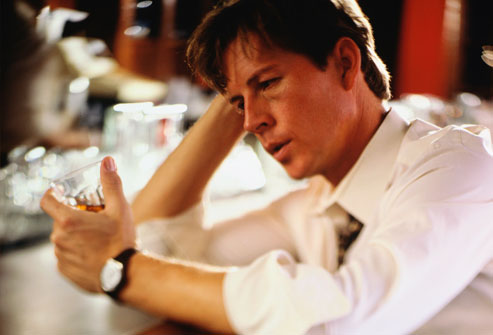One late afternoon in October 1978, I found myself at a deserted outdoor restaurant in Boulder, Colorado with only the bartender for company. In the lengthening shadows of the Rocky Mountains, chilled by the wind, I stood with drink in hand suddenly overcome by a sense of loneliness and isolation.
I watched the lights wink on in the little houses on the side of the slope and wished that I was living in one of them doing what normal people did—like mowing the lawn and cleaning the garage and playing touch football with my kids.
Something happened on that October evening that began a change in me after 20 years of alcoholic drinking. Two months later, I attended my first AA meeting and began my journey of recovery. I got off to a rather rocky start.
The thing is, I thought I wanted to get well, but there was really no sense of commitment. Turns out what I really wanted was a temporary fix for my feelings of inadequacy and shame that would allow me to pursue my use of alcohol and tranquilizers, perhaps in reduced quantities, without consequence.
So it was that after three months in AA, I chugged a bottle of vodka and went into a two-week blackout that ended with me boo-hooing on the floor of my condominium with two of my AA friends in attendance.
Thoroughly ashamed and miserable, I went back to AA, became a Christian a year later and haven’t had a drink in 34 years.
A New Beginning
My whining and waffling brings to mind an encounter Jesus had with a crippled man at the pool at Bethesda in Hebrews 12:2. Robert Lewis, a founding pastor of Fellowship Bible Church in Little Rock and also the founder of the international Men’s Fraternity made the encounter the subject of a sermon many years ago.
The passage says, “Now a certain man was there who had an infirmity thirty-eight years. When Jesus saw him lying there, and knew that he already had been in that condition a long time, He said to him, “Do you want to be made well?”
The man, instead of grabbing the generous offer, starts blaming others for not helping him over the years. The sick man says, “Sir, I have no man to put me into the pool when the water is stirred up; but while I am coming, another steps down before me.”
Undeterred by the whining, Jesus says to him, “Rise, take up your bed and walk.” And immediately the man was made well, took up his bed, and walked.
So that’s the question each of us must ask ourselves, “do I really want to get well? Do I really want to take the action to get rid of my addictions and other sins or do I want to wallow in self pity and do nothing to change my circumstances and maybe get by?” “Do I really want or deserve a new beginning?”
When I first began attending Fellowship Bible Church (FBC) in Little Rock more than thirty years ago, I was newly sober, attending daily Alcoholics Anonymous meetings and more than a little jumpy.
Also, I was not sure FBC was the right place for me. Everyone I met seemed to have it all together, and I found their smiley Christian faces a little annoying. If they felt the same annoyance with my pinched and dour looks, nobody said anything.
I brought my reservations to the attention of my pastor, Robert, one day stating that when I looked out over the congregation all I saw was a sea of smiling faces belonging to people who clearly had their act together.
We’re All Skunks and God Knows
What I actually said was, “I feel like the skunk at the garden party.”
“That’s funny,” Robert replied, “when I look out over the congregation all I see is sin, including my own.”
I found his reassurance that we are all skunks at the garden party, not just me, somehow comforting.
FBC actually puts it more tastefully, “We are all broken in some way—spiritually, physically, emotionally, and relationally. We all suffer because of the effects of the Fall.”
I didn’t get it at first, but as I grew in my faith I began to understand that we really are in the same boat and treating our fears and perceived shortcomings with all kinds of addictions and other self-destructive ways.
And as I began to get over myself, I got to know some of the alcoholics in the FBC congregation, and we formed an AA group which met weekly at the church. I was later involved with the Born Free ministry, started by one of my Christian AA friends in the church. And I was also involved in bringing the Celebrate Recovery ministry to the church a decade ago.
Bottom line? We cannot fix what is broken in us, but there is hope! God can and will if He is sought.





Leave a Reply